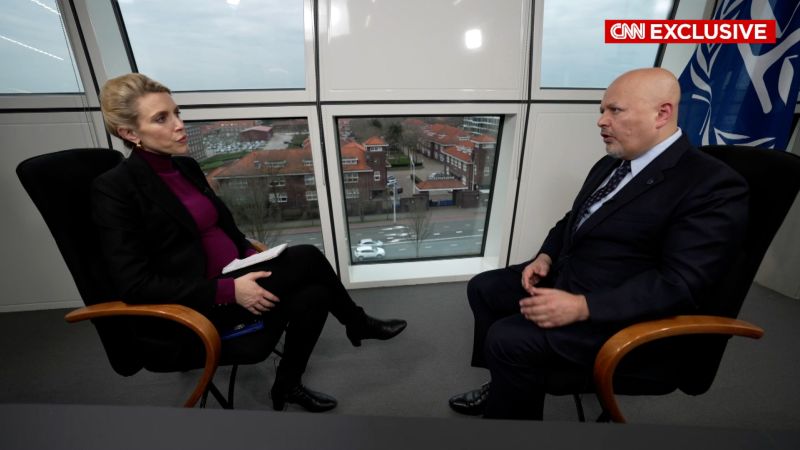In early August, dozens of Democratic lawmakers fled Texas for Illinois, denying Republicans the quorum needed to pass new congressional maps projected to give the party as many as five additional seats. Their absence paralyzed the state legislature, turning a walkout into political resistance and drawing national attention.
As the standoff dragged on, Gavin Newsom, California’s governor, offered an unorthodox countermove: a proposal to suspend his state’s independent redistricting commission and draw maps designed to hand Democrats a comparable advantage. He unveiled the plan with spectacle, mimicking Donald Trump’s signature style through all-caps declarations, a mocking nickname for White House press secretary Karoline Leavitt (“KaroLYIN”) and AI-generated celebrity endorsements.
While Texas Democrats ultimately returned and the Republican redistricting plan has advanced, Newsom has been cast as the emerging leader of Democratic opposition to Trump. Why did it take the party nine months to find one?
It wasn’t for lack of need. Just last summer, Trump ousted independent agency heads who contradicted his narrative, deployed the national guard to Washington DC against the mayor’s wishes and granted the attorney general license to enlist the justice department in partisan battles. Each step pushed democratic norms closer to the breaking point.
The real answer is that the most powerful liberal institutions – the Democratic establishment, major donors and the professional class around them – are captive to outdated etiquette. They prize agreeability as an end in itself: disruption is discouraged, compromise exalted, restraint worn as a badge of honor. And because these institutions shape liberal culture from the top down, their attachment to niceties dulls urgency and narrows the space for bold, breakout leadership.
What makes Newsom unique is his willingness to defy convention when circumstances demand it. The lesson is not in his theatrics, but in the reminder that strategically breaking norms can sometimes accomplish more than following them.
California’s independent redistricting commission is written into the state constitution, which means Newsom’s proposal cannot advance without voter approval in November. Even if successful, redistricting alone is only a stopgap. The deeper fight is cultural: whether the Democratic establishment can break its attachment to rigid politeness before democracy withers.
The stakes are not theoretical. The Trump administration has undermined judicial independence, hollowed out federal agencies and run straight through one of elite liberalism’s most entrenched institutions: big law.
For decades, elite law firms have been essential to Democrats, supplying both the funding and talent that sustains the party’s infrastructure. Yet when faced with punitive executive orders, some of these very institutions – once defenders of liberal democracy – folded, signing settlement deals that critics have labeled unconstitutional and undemocratic.
Until recently, I was an associate at a big law firm. After publishing an op-ed about the constitutional dangers of a Trump-Palantir partnership - implicating my firm’s client Trump Media, and a former client, Palantir – I was warned that continuing to speak out could cost me my job. What came next was more interesting: a test of how far one act of dissent could ripple through a system built to contain it.
Instead of leaving quietly, I challenged big law publicly. I announced my firing on Instagram with a caption that began “Candidly, I’m disgusted” and concluded with a stern rebuke of big law’s surrender to Trump “in shadowy back rooms, on billion-dollar yachts”. The post was raw, even theatrical, but its real purpose was to spotlight a more substantive op-ed I had written on the corporate legal sector’s complicity in democratic backsliding.
Within hours, the post went viral. Political commentators with a combined audience of more than 10 million amplified it on social media, and leading legal publications picked up the story. The op-ed drew more than 50,000 readers, including Fortune 500 CEOs, non-profit leaders and the dean of Harvard Law School. Even the prominent legal scholar Laurence Tribe shared the piece.
What began as a messy act of dissent had become legitimized critique. Some elites may have clutched their pearls at the breach of decorum, but the spectacle renewed debate over big law’s role in creeping authoritarianism.
In elite liberal spaces, the expectation is always the same: stay quiet, exit gracefully, never make a scene. Yet nonviolent unruliness has power precisely because it breaks the code of composure. Psychologists call this the “expectancy violations theory”: when behavior defies what’s anticipated, it commands outsized attention and carries significant weight. That impact is magnified when it comes from insiders with status or access.
This dynamic suggests that liberalism’s best strategy is to subvert its own norms. Critics may argue that spectacle undermines substance, or that breaking etiquette diminishes the credentials that lend Democrats authority. But in today’s attention economy, spectacle is often how substance gets noticed. Breaking strict decorum is not the enemy of liberalism; it may be the very tool that keeps it alive.
Elections bear this out. In Wisconsin’s supreme court race this year, the candidate Susan Crawford broke from traditional judicial etiquette. She waged a decisively bold campaign, labelling her opponent Brad Schimel “a rightwing extremist” and mocking him as “Elon Schimel” in light of his endorsement by the controversial tech billionaire. Behavior that might once have seemed undignified instead helped drive record turnout and carried her to a decisive victory.
By contrast, in Ohio’s 2022 Senate race, the US representative Tim Ryan built a campaign on moderation and convention, presenting himself as a steady unifier. That strategy failed to resonate with the electorate, overshadowed by the deliberately unorthodox and provocative campaign of his opponent, JD Vance, now the vice-president.
after newsletter promotion
The cult of congeniality has left Democrats out of touch. Their resistance, defined by hollow gestures like waving “No King!” and “Save Medicaid” signs on the House floor, only underscores how mismatched the party is to the moment. The reason is clear: politics has evolved, but the Democratic establishment still clings to the Obama-era script of unwavering politeness and reserve that now defines a bygone age.
That era ended with the mainstream embrace of rightwing populism. In the late 2000s, the Tea Party clawed its way into the national spotlight by angrily heckling Democratic lawmakers, parading AR-15s outside political events and staging unruly rallies on the National Mall. The movement dominated headlines, heavily influencing the Republican party’s agenda and showing that unruliness itself could confer political legitimacy. By the 2010 midterms, Republicans had turned that ethos into an electoral strategy and managed to flip 63 House seats, the party’s largest gain since 1948.
If the Tea Party proved that disrupting norms could win elections, Trump showed that it could seize an entire party. Once a familiar face on red carpets and network television, he built a political base by rejecting etiquette: apparently mocking a reporter’s disability live on stage, attacking a federal judge’s ethnic background and urging supporters to use physical force against protesters at his rallies. Acts that might once have disqualified a candidate instead became evidence that longstanding norms were now optional.
Even so, Democrats should not use rightwing populism as a blueprint. That approach is rooted in demolition: attacking institutions indiscriminately, sometimes through brute force. What’s needed instead is an approach rooted in defense: reinforcing institutions carefully and rejecting violence wholesale. When Nicole Collier, a Texas state representative, camped out in the House chamber, she was not attempting to upend the legislature. She was pushing back against a Republican power play that threatened its integrity.
Skeptics may argue that this style of politics risks alienating moderates or deepening division. But unruliness is not an end in itself: it is a temporary shock meant to restore democratic vitality. Here, abandoning etiquette is less about breaking order than resetting it. As the economist Karl Polanyi observed, such interruptions act like an immune response, jolting institutions back to health so decorum can return.
Of course, bold disruption carries risk. Breaking composure can cost reputations, careers, even relationships. From Harry Belafonte, ostracized by Hollywood and mainstream media for defiant civil rights activism, to Larry Kramer, rejected by his peers for uncompromising Aids advocacy, history shows that those who put action above etiquette often paid dearly. But sacrifice itself – the willingness to acceptance consequences – is what transforms dissent into political pressure.
The task now is to channel deliberate, nonviolent unruliness into strategy. Trump’s return to the White House made clear that authoritarianism does not yield to decorum. Voters recognize this: a recent survey found that nearly three-quarters of Democrats believe their leaders aren’t fighting hard enough. Newsom has now stepped forward, with Kathy Hochul, the New York governor, and Obama himself – the onetime apostle of gentility – lending their support. Breaking ranks will not always succeed, but caution all but ensures defeat. The choice is plain: abandon outdated norms, or watch democracy slip away.
What’s giving me hope now
What gives me hope are the people living out Jane Goodall’s final lesson: that hope is a discipline we practice together, not a feeling we hold alone. The ones who show up at town halls, register young people to vote and lean into the small, human bonds that keep hope alive. Connection is everything.
-
Ryan W Powers is a legal analyst who writes a weekly newsletter on democracy, dissent and the law









 English (US)
English (US)